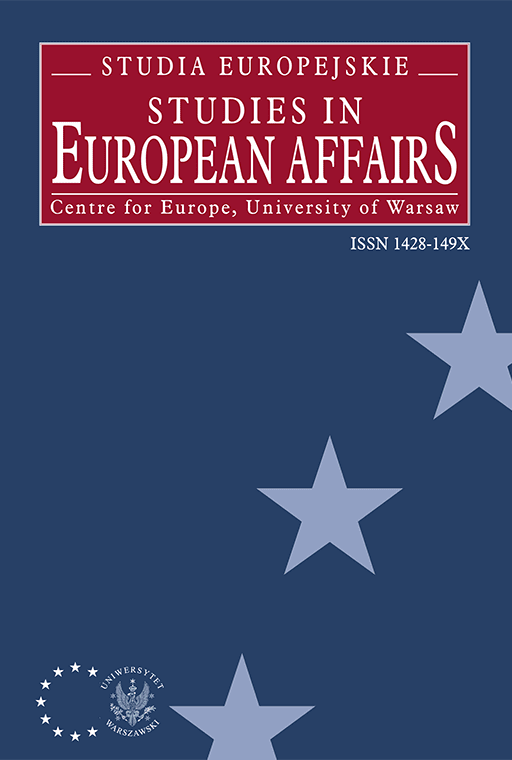
ISSUE: 4/2006
- Volume 40
- Number 4
- 2006
Subscribe NEWSLETTER
Studia Europejskie –
Studies in European Affairs
ISSN: 1428-149X
e-ISSN: 2719-3780
License
Articles published in the journal are under a Creative Commons Attribution – Non Commercial – No Derivatives 4.0 International License
Elementy otwartej koordynacji w obszarze wolności, bezpieczeństwa i sprawiedliwości Unii Europejskiej
Open method of coordination in the area of freedom, security and justice of the European Union
Abstract
The open method of coordination (OMC) was established in 2000 by the Lisbon European Council. It was designed as a tool of modernization of the Community policies through better and more efficient governance at supranational level. OMC sought to improve policy governance and decisionmaking within weakly constitutionalised areas of Community competences. In this context, the considers how the new method could be implemented in the EU “soft” policy areas, such as cooperation in justice and home affairs. An analysis of strategies, action plans and communications aiming to maintain and develop the EU as an area of freedom, security and justice clearly reveals that principal instruments of the OMC (like best practices, scoreboards, benchmarks and peer reviews) are actually implemented, although their application has been selective and limited. This is due to serious weaknesses of the Community institutions (the Commission in particular), to conflicts of interests among the EU Member States, to social actors’ reluctance to really involve and to lack of proper co-operation on various levels and among various interested bodies.
Language: Polish
Pages: 11-39
How to Cite:
Harvard
Gruszczak, A. (2006) "Elementy otwartej koordynacji w obszarze wolności, bezpieczeństwa i sprawiedliwości Unii Europejskiej". Studia Europejskie – Studies in European Affairs, 4/2006, pp. 11-39.